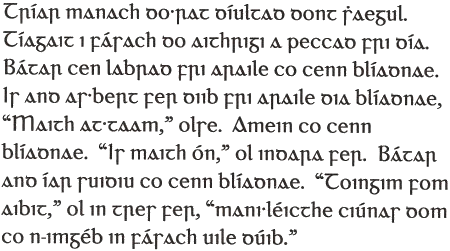When I mention to people that I’m a linguist or have studied linguistics, they often ask something like “Oh, which language(s)?” The popular idea of a linguist seems to be someone who studies / speaks quite a few languages, and linguistics is thought of as studying languages, rather than the study of language in general. As I have studied both linguistics and quite a few languages, I could call myself a linguist in both the scientific and popular senses, and to avoid explaining linguistics every time I often go along with the popular definition.
Most of the people I met in Ireland were interested in languages, and some of them were interested in linguistics, including an American lass who is keen to study linguistics and document some of the native languages of North America, particularly of Alaska. There was also someone else who is studying Irish Sign Language (ISL – Teanga Chomharthaíochta na hÉireann) and was keen to find out about British Sign Language (BSL). Very few ISL signs were familiar to me, and it seems to have more in common with French and American Sign Languages than with BSL.
When people discovered that I speak Welsh, quite a few of them asked me it was hard to learn, as they think it looks very difficult to pronounce. My Welsh-speaking friends make similar comments about Irish. I find Welsh spelling easier as most letters only have one sound and all letters are pronounced, whereas most letters have at least two sounds in Irish and quite a few of them are not pronounced.

